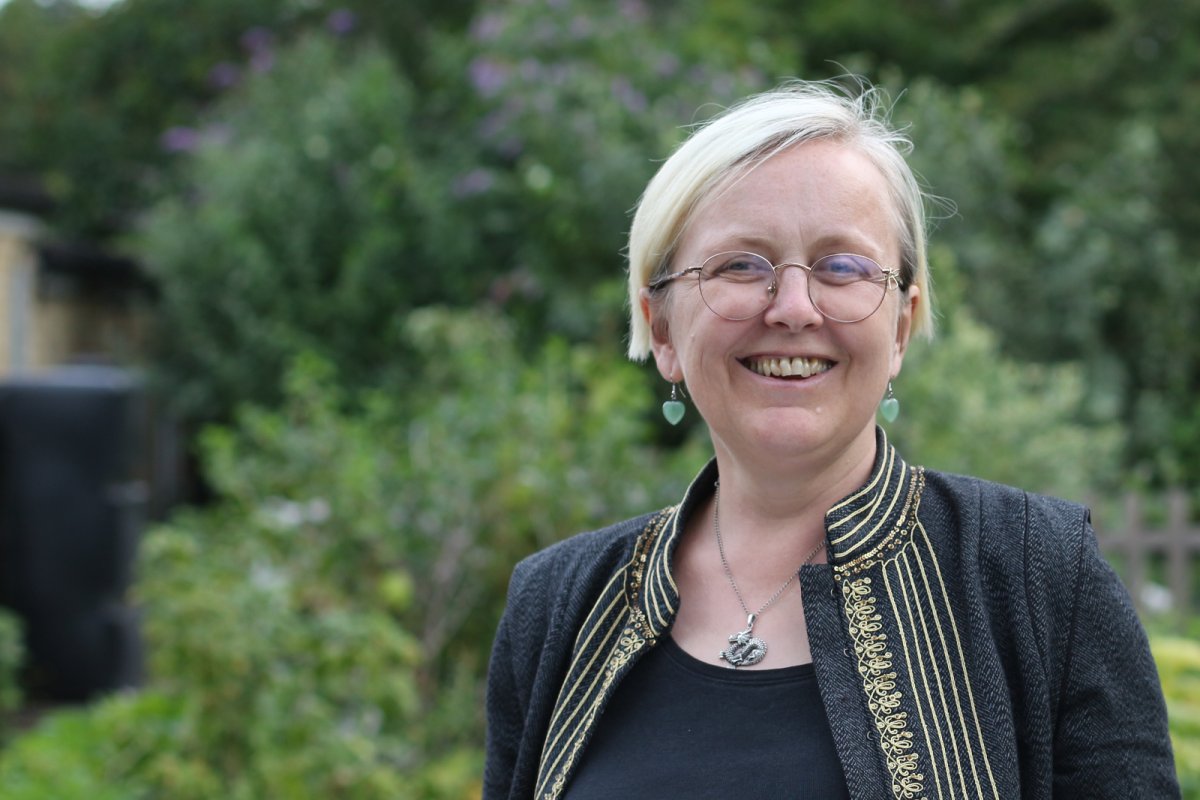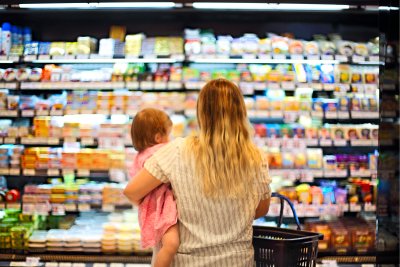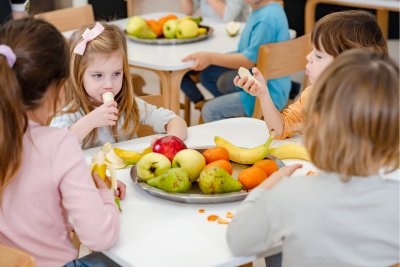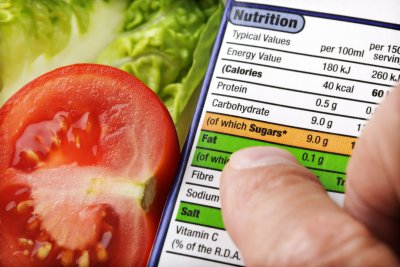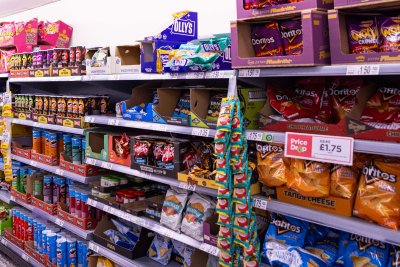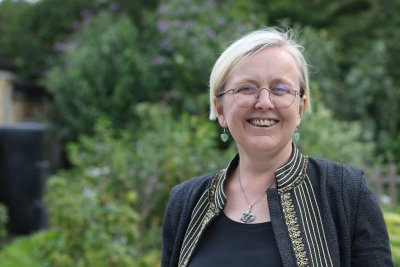 VideoKath Dalmeny. Credit: Sustain
VideoKath Dalmeny. Credit: Sustain
The Food Strategy must make school food a beacon for health, farmers and nature, according to Kath Dalmeny, Chief Executive of Sustain who featured on the latest Radio 4 Food Programme this May.
The 'Feeding the nation' episode also interviewed Katie Palmer from Food Sense Wales, who works on the Welsh Veg in Schools Project and Sustain's Bridging the Gap pilot.
Hosted by Sheila Dillon, the programme examined efforts to improve public sector catering and the supply chains that get the food from farm to plate.
LISTEN HERE: The Radio 4 Food Programme episode, broadcast at 11am on Friday 2 May 2025; repeated at 22.15pm on Saturday 3 May, and available on demand.
Sustain’s CEO Kath Dalmeny said:
“The principle of ‘public money for public goods’ is enshrined in law to support nature-friendly farming. We must apply the same legal principle to all money spent on food by public institutions, especially schools, to provide good food that helps children, nature-friendly farmers and the planet.”
“Every penny of our money that national government and local authorities spend on food should be required to pass the test of whether it is harming our children’s future, or supporting the future they want to see – where good food supports their health, and in which nature-friendly farmers, wildlife, clean air and rivers can thrive.”
The Radio 4 Food Programme featured inspiring stories from Sustain’s Bridging the Gap programme, making organic fruit, vegetables and pulses more affordable and accessible. Katie Palmer of Food Sense Wales (a Sustain alliance member) talks eloquently about the well-evidenced benefits to Welsh schoolchildren and horticultural growers of the Welsh Veg in Schools pilot. Scaled up, and with the support of the Welsh Assembly government, this could result in tonnes of beneficial change for farmers, nature and greenhouse gas emissions. Katie highlights the critical role of Welsh Assembly government support, within the legal framework of the Welsh Future Generations Act, that helps make this work a priority for Wales and public expenditure.
In the interview, Sustain's Kath Dalmeny also highlights two more Bridging the Gap pilots – Give Peas a Chance providing affordable organic split peas into 11,000 meals for schoolchildren in Aberdeen, Scotland; and the Hackney Organic School Food pilot, introducing organic fruit and veg into every meal in two schools in Hackney, north London, purchased via the not-for-profit Better Food Shed organic wholesaler, part of Growing Communities (a Sustain alliance member), which champions farmer-focused supply chains and fair dealing with local organic farmers and growers.
Hannah Gibbs, Sustain programme manager for Bridging the Gap, said:
“Bridging the Gap’s pilots have demonstrated that UK-grown organic fruit and veg can be incorporated into school meals, benefitting young people, farmers and our environment. An extra 3.3p per meal in Wales would ensure 2 portions of locally grown organic veg on every school plate. Securing this level of demand for organic farmers would encourage more nature-friendly growing while providing a health kick to young people, benefiting climate and nature alongside long-term public health.”
View a short film shining a light on the innovative work of Sustain's Bridging the Gap programme, making climate- and nature-friendly food available, affordable and accessible.
If you are involved in local authority food purchasing, contact Sustain's Food for the Planet team to discuss how to align your meals with health, climate and nature
The Radio 4 Food Programme features an interview with award-winning Derek Wright, Catering Services Manager from Blackpool Council, talking about his extensive work to integrate locally produced food into school meals, and the challenges he has faced due to lack of support from national policy. He highlights fragmentation of school meal contracts, and the lack of a food standards requirement for academy schools as barriers to change.
The programme also features expert commentary from Professor Kevin Morgan from Cardiff University, who is a leading proponent of high standards for public sector food procurement. His new book Serving the Public: The Good Food Revolution in schools, hospitals and prisons is launched next week and features many excellent examples of local action for a better food system from across the Sustain alliance and Sustainable Food Places networks, the Bridging the Gap programme, and examples of inspiring good practice in other countries. Professor Kevin Morgan argues this must now be replicated and required within the UK’s National Food Strategy.
The Sustain food and farming alliance has championed high standards in public sector food procurement for over 20 years. Working together, we won initial baseline health and environmental requirements in Government Food Buying Standards for central government; a contractual requirement for all NHS hospitals to have a healthy and sustainable food policy; and supported the requirement in law for schools to meet national nutrition standards (although this does not yet cover agroecological farming, climate and nature, nor does it apply to academy schools).
Read Serving Up: A briefing authored by Feedback’s Martin Bowman and Sustain’s Ruth Westcott, setting out how to align public procurement of food for UK public institutions with healthy sustainable diets.
As an absolute priority, Sustain wants to see the government’s proposed National Food Strategy introduce mandatory standards for all public sector food, in line with the established ‘public money for public goods’ principle, properly funded and monitored to ensure that every penny spent by public authorities on food demonstrably supports public health and nature-friendly farmers, and the accelerated transition to agroecological farming and land use.
Vote for Sustain’s CEO Kath Dalmeny in the British Library’s 2025 Food Heroes Awards.
Bridging the Gap: Exploring ways to make organic food more accessible via farmer-focused supply chains.
